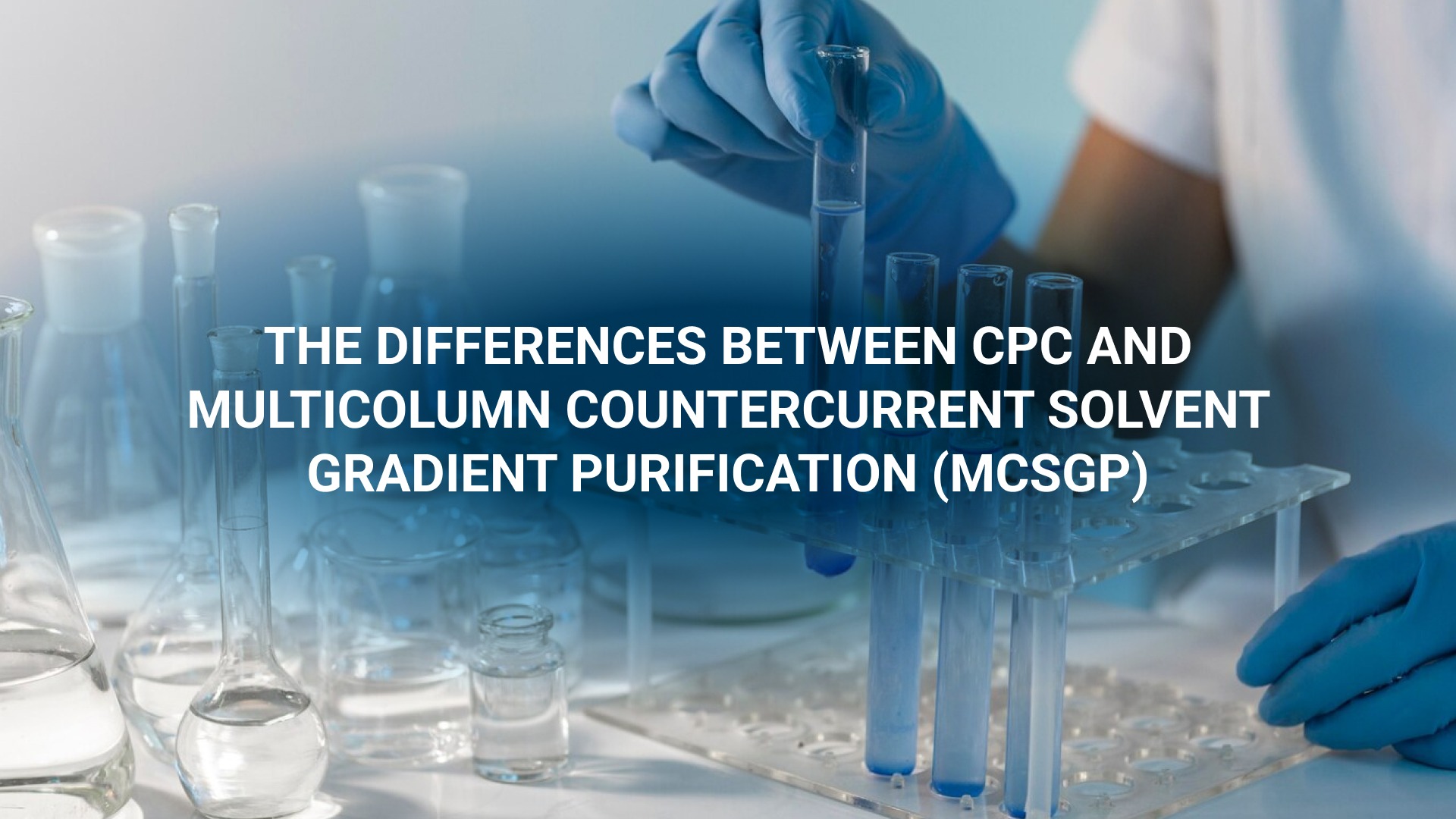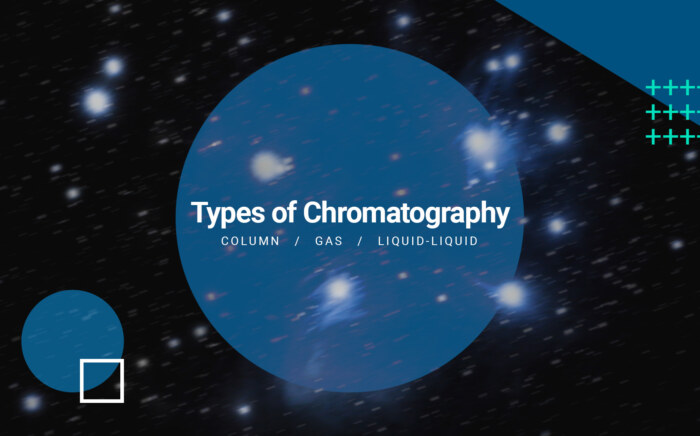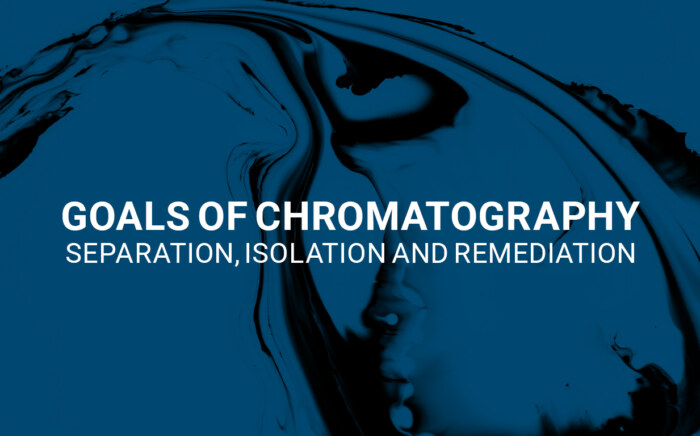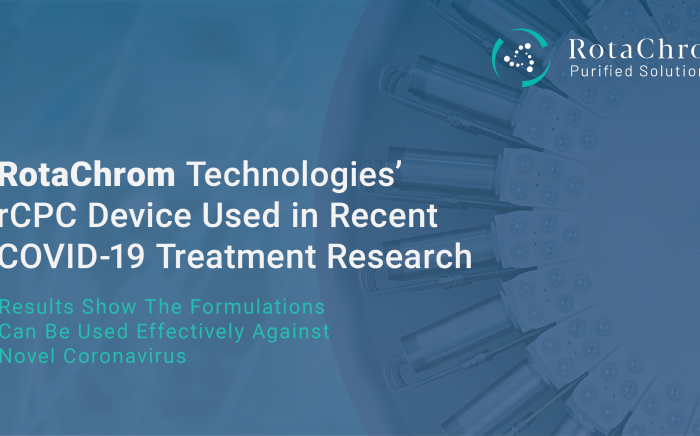Increasing separation efficiency by pH adjustment in Centrifugal Partition Chromatography
NewsHow MCSPG Compares to Centrifugal Partition Chromatography
MCSGP offers several benefits compared to traditional chromatographic methods. However, it is still outperformed by a competitive technology, centrifugal partition chromatography (CPC).
This novel system eliminates the need for a solid stationary phase, such as silica gel, to achieve precision molecular separation. It offers superior performance compared to conventional liquid chromatographic techniques, particularly in terms of yield and purity. Moreover, the CPC platform significantly reduces both the costs and the number of steps involved in downstream method development, making it highly effective for a wide range of purification challenges.
Centrifugal partition chromatography (CPC) and multicolumn countercurrent solvent gradient purification (MCSGP) are both advanced techniques used in the separation and purification of chemical compounds, particularly in the pharmaceutical and biotechnological industries. Each method has its own strengths, but there are several key ways in which CPC can outperform MCSGP. We will look at those advantages later, but first let’s discuss what MCSGP is.
What is MCSGP?
Multicolumn Countercurrent Solvent Gradient Purification (MCSGP) is an advanced chromatography technique designed for the separation and purification of molecules from complex mixtures. Utilizing multiple chromatographic columns—at least two—this method switches column positions in a countercurrent manner relative to the flow direction. Some columns internally recycle non-pure product streams, while others function in pure batch mode, creating an efficient and continuous purification process.
By combining the principles of countercurrent simulated moving bed (SMB) and solvent gradient batch techniques, MCSGP offers a versatile and efficient solution for purification. It addresses several limitations of traditional methods, enhancing overall separation performance with higher yields, reduced solvent consumption, and increased productivity.
Advantages of Centrifugal Partition Chromatography over MCSGP
Solvent Flexibility and Efficiency
- CPC: CPC does not rely on solid stationary phases, instead, it uses immiscible liquid phases. This allows for a broad range of solvent systems to be employed, making it highly adaptable to different types of solutes and solvents. This flexibility can result in more efficient separations and the ability to handle a wider variety of compounds, including those that are sensitive to solid phases.
- MCSGP: Although MCSGP can utilize a range of solvents, it is still dependent on the solid stationary phases used in the columns. This can limit the range of solvents and conditions that can be effectively used without damaging the stationary phase or altering its properties.
Scalability and Throughput
- CPC: CPC systems are relatively simple and can be scaled up easily from laboratory to industrial scale. The absence of solid stationary phases reduces the complexity and cost of scale-up processes. High throughput is achievable because the separation process can be continuous and does not require frequent column regeneration.
- MCSGP: While MCSGP is also scalable, the need for multiple columns and the complexity of their operation can make the scale-up process more challenging and costly. Additionally, column maintenance and regeneration can reduce overall throughput.
Lower Risk of Column Fouling and Degradation
- CPC: Since CPC uses liquid-liquid partitioning without solid phases, there is minimal risk of column fouling or degradation of stationary phases. This leads to more consistent performance over time and reduces the need for maintenance and replacement of components.
- MCSGP: The use of solid stationary phases in MCSGP can lead to fouling, degradation, or changes in column performance over time, especially with complex or particulate-laden samples. This can result in increased maintenance costs and downtime.
Environmental and Cost Benefits
- CPC: CPC can be more environmentally friendly as it often requires less solvent overall, and the solvents used can be easily recovered and reused. The lack of solid phases also reduces the waste generated from spent columns.
- MCSGP: MCSGP can consume more solvents, especially during the column regeneration phases, and generate more solid waste from the columns. This can increase both environmental impact and operational costs.
Operational Simplicity
- CPC: The operation of CPC systems is relatively straightforward with fewer parameters to control compared to MCSGP. This can make method development and routine operation easier and faster.
- MCSGP: MCSGP requires careful coordination of multiple columns and precise control of solvent gradients and flow rates. This complexity can increase the time and expertise required for method development and routine operation.
Handling of Heat-Sensitive Compounds
- CPC: The absence of solid phases and the use of liquid-liquid partitioning can be gentler on heat-sensitive compounds, reducing the risk of degradation during the separation process.
- MCSGP: Heat generated during the solvent gradient process and within the columns can sometimes pose a risk to heat-sensitive compounds, potentially leading to degradation.
Further Resources
To learn more about CPC and chromatography in general, click any of the links below.



